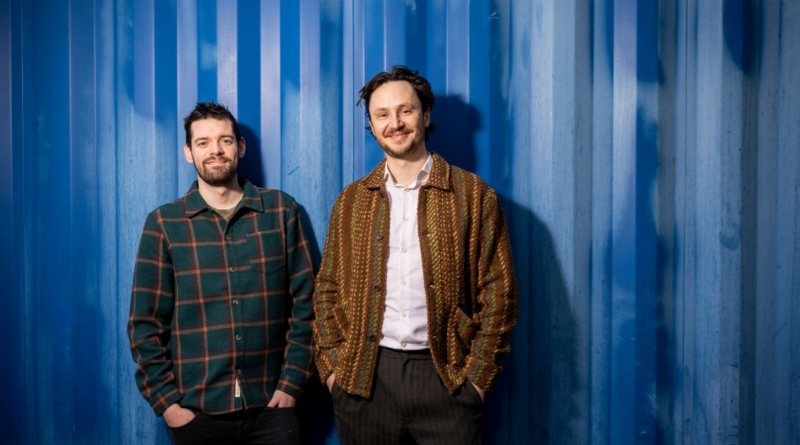Lun is in a mad rush to help heat-pump installers decarbonize homes
Lun, a climate tech startup out of Denmark, is on a mission to help homes decarbonize fast — starting with heating systems and swapping out boilers for electric heat pumps.
What are heat pumps? The technology is a low carbon form of heating which is based on the principle of refrigeration that offers an alternative to environmentally unfriendly options like oil and gas-fired boilers. At a basic level, heat pumps work by using electricity to transfer heat from one place to another, so they’re able to both heat a house in winter and cool it in summer (or at least up to a balance point at which a supplemental system may be required).
There are several different types of heat pump (air-source, water-source, ground-source etc); and installations need to start with an assessment of the property which needs to consider a variety of factors before being able to go ahead — such as which type of pump is appropriate to the given property, land and climate; where to site units and components and whether to reuse elements of an existing heating system; how well (or poorly) insulated the property is; and even whether the heat pump brands a particular tradesperson prefers to work with are appropriate for the job in question.
The need for all this detailed up-front assessment complicates the sales process for heat pump installations — and that, in turn, slows down the decarbonization of households. Since in-demand plumbers and electricians may simply decide it’s easier to focus on other types of work (including, climate-horror-of-horrors, installing more fossil fuel burning boilers that pump CO2 directly into the atmosphere).
Helping redirect the energy (ha!) of installers towards decarbonization via fitting more heat pumps is what Lun hopes to do by building a platform for tradespeople — which it dubs an installation “operating system” — to provide them with “full stack” support so they can get on with ripping out boilers and replacing them with heat pumps. And, as they earn money doing that work, help decarbonize the planet faster.
Its software, which is currently in an alpha release with an undisclosed number of testers in Denmark, aims to take some of the strain out of installation assessments, design and planning, as well as handle other business elements like taking payments. It’s providing tradespeople with a suite of tools for gathering relevant data from householders and automating suitability assessments — doing the latter by drawing on public and/or open data (such as satellite imagery), as well as feeding in data from OEMs (such as price, specifications), as well as property type/location etc, to try to find the best match between a job and a professional installer.
“We start very small,” says co-founder and CEO Martin Collignon. “We start with where they lose the most time — which is in sales. Many of them go visit homes way too early, before they actually know whether the customer is interested or not. Or whether the house is relevant or not. And that’s what we focus on and then we build on the the entire stack all the way to payment… to make sure that they’re supporting every part of the journey. And they could focus on what they’re good at, what they trained at, and what they earn money on — which is installing the heat pump.”
“We want to make them more efficient,” he continues. “So right now around 40% of the time spent on heat pump sales and installation is spent on not installing the heat pump… So we just want them to be able to do more heat pump installations, over the year, because they have less of the other stuff to do — the sales, the design, the procurement, the financing, the paperwork, the compliance work, finding other [tradespeople]… all these things.
“We want to make it automated, with the technology in there, so they don’t have to spend time doing that… And the result of that is that doing heat pump work will be at least as profitable as the other task — and hopefully more profitable — so they can focus on heat pumps because it’s just a great job for them. So it’s not as much of a pain in the butt as it is today.”
“It’s an industry that is less digitalized than most… and our goal — and what we really focus on — is [building] a product that they see as a no brainer,” Collignon adds. “That’s really the challenge because they’re busy enough. So we really need to build something that they love. And that’s what we focus on right now.”
Heat pumps are also just the start for Lun — as he says the big vision is for the platform to support tradespeople who’re able to apply a full sweep of renewable and decarbonizing technologies. Whether that’s installing electric charging points for vehicles, fitting PV panels to generate solar energy, or electrifying stoves. (In some rural regions of Europe solid fuel and/or wood burners for home heating are still absolutely a thing!)
Other startups are also looking to grease the pipe of household renewables — from the likes of Germany’s Zolar, Spain’s Samara, US-based OpenSolar or Are Solar, to name a few (there are also others focused on HVACs, such as US-based Conduit Tech) — but such is the scale of humanity’s home decarbonization task it’s going to take several villages’ worth of startups attacking the problem from as many angles as possible as fast as humanly possible. Or, as Collignon says, the more the merrier.
“We focus on heat pump now but our goal, our mission is to decarbonise homes faster in general,” he tells TechCrunch. “Heating is the major lever — that’s 80% of the energy consumption — but there’s a bunch of other things that we need to think about.
“So the goal really is that we can be the platform that all the tradespeople that want to aspire to be professionals in renewable technologies and decarbonisation technologies for buildings they can use that platform. And we focus very much — and will focus for a long time — on retrofits. So that’s taking the old buildings that we have and making them modern, more clean, more affordable [not dependent on] of fossil fuels that come from bad places around the world, basically.”
The Copenhagen-based startup was founded at the end of March last year, shortly after Russia invaded Ukraine. The war triggered a major crisis around Europe’s energy needs, amping up the argument for transitioning away from gas — now on geopolitical grounds, as well as the climate crisis. The Ukraine war was the final catalyst for the co-founders to formally incorporate Lun, per Collignon.
He’s a climate activist turned tech founder who before all this worked in the tech industry — for giants including Google and Uber. But after several years of grinding away at the Big Tech coalface he says he got “very, very badly” burnt out and decided to refocus his priorities. Then, along with his co-founder Anders Valentin — who brings a background in insurtech to the venture; and was a friend of Collignon from their business school days — the pair set about figuring how they could make maximum impact in the climate fight. Fast. And they landed on streamlining the installation of heat pumps.
“The simple reason we looked at heat pumps was it was mentioned in all the climate reports — you could find from the IPCC to the IEA to the European Union, everything — everyone mentioned heat pumps. But when we started looking at it, a bit more than two years ago, it was still a very niche technology where demand was the main issue but we knew from all these reports that they would change, hopefully soon, to a supply problem,” he explains, fleshing out their rational for starting with what’s still a pretty unfamiliar technology in many European markets. (Figures for installations can vary considerably depending on the country but overall numbers are still low; market data from the European Heat Pump Association puts the total figure of regional installation at 16.98 million or around 14% of Europe’s heating market.)
“So we started looking at what will be the issue — not now but really in five, seven years from now — for the industry. And it became very clear that [tradespeople] would become — very fast — a bottleneck… Plumbers is already the profession that we lack the most in Europe, way ahead of software engineers, for example. So we were really thinking it seems unlikely that we’re going to get more [tradespeople] before 2030 if you look at all the reports, so the only way we could solve this is really make the task of installing renewable technology into something more interesting — more economically viable — for these [tradespeople]. Because, if you think about it, they can do a bunch of other things… So that’s how we started looking at the problem. That’s what we’ve been doing since.”
Lun is being buoyed up in its decarbonization mission by closing a new round of funding — €10.3M in seed funds, which it’s announcing today — topping up a €550k pre-seed it raised previously to build its MVP. The seed funding comes from new investors including Norrsken VC, Partech, Lowercarbon Capital, and MCJ Collective as well as existing investor Foundamental. (Xoogler Ventures and other angel investors also backed its pre-seed.)
The funds will go on continuing to build out the product — making sure it delights the target user so Lun can get more of the critical skilled installers on board. It is also eyeing European expansion and Collignon notes it has an early partner in Austria so that is likely to be one of the next markets.
Commenting on the seed funding in a statement, Chris Sacca, founder of Lowercarbon Capital, said: “Getting off gas for heat isn’t just critical for the climate, if you live in Europe it’s the patriotic thing to do, and Lun is the cheapest, fastest, and easiest way to get an electric heat pump installed.”
“Changing the way we consume energy in our homes should be a top priority for everyone for many different reasons: Climate, health and economic well-being,” added Agate Freimane, Norrsken VC, in another supporting statement. “We were impressed by Lun’s speed of execution and excited to be supporting them on their journey.”
Foundamental’s Patric Hellermann dubbed electrifying buildings “top of mind” in the climate fight — with the “No.1 bottleneck” being making more installer-time available — going on to pronounce that Martin and Anders “have cracked that code with their software” in another statement.
Lun is a for-profit venture, despite its high worth climate mission. So what’s the business model? That’s still a work in progress, per Collignon, who says it’s exploring different revenue streams — potentially a subscription fee or a transaction model. He suggests they could also look to tap revenue streams around financing or even the heat pump hardware itself. “Your heat pump is quite an expensive thing — that can cost between €15,000 to €25,000 in many places — so we think there’s different ways where you can take a small cut of that. Basically, if you make things more efficient,” he adds.
When does he predict a tipping point for consumer uptake of heat pumps? And a mass move away from fossil fuel burners that we all desperately need to see happen ASAP. “When it’s worthwhile for consumers,” he responds on that. “I’ve worked in climate tech for quite some time and… it’s always the technology that makes it affordable for consumers that wins, basically, not the one that’s the greenest. So we need to make sure that it’s economically advantageous to instal heat pumps — and to instal these technologies more than anything else.
“I believe that when that will happen is when it becomes worthwhile. Which it was last year — when the gas prices were insane. And then now we see some countries moving with certain bans [on installing gas boilers after particular cut-off dates] and certain de facto obligations to instal heat pumps as your next in technology. Then that’s of course a game changer. And I believe that’s going to happen in more places.”
Another decarbonization ‘lever’ Collignon says he’s personally fought for in Denmark is making sure the “externalities of using fossil fuels are priced correctly”, as he puts it. Or reform of energy markets and taxation systems to support consumers to make green choices — so there’s definitely work for regulators to be getting on with here too. “Make sure you have a carbon tax that reflects the impact on the climate, basically, and if that happened, then it would be very obvious very very, very fast that it’s a lot better to use a heat pump — economically, for climate, for geopolitics etc — than it is today,” he adds.




